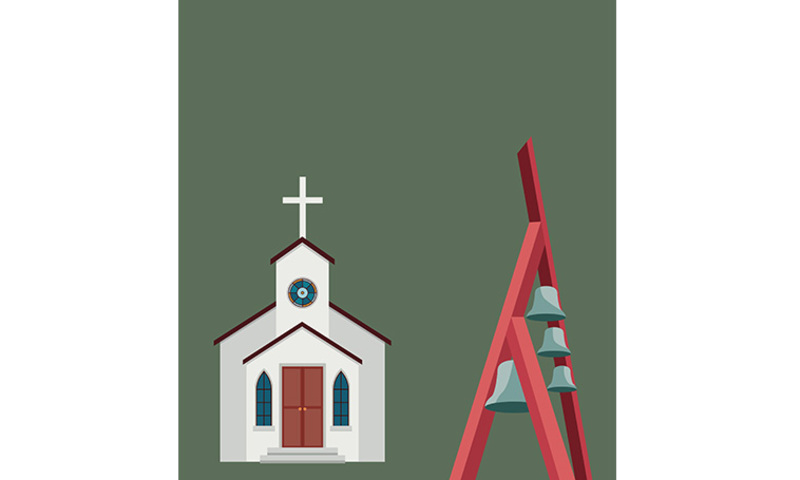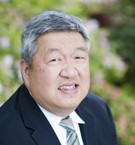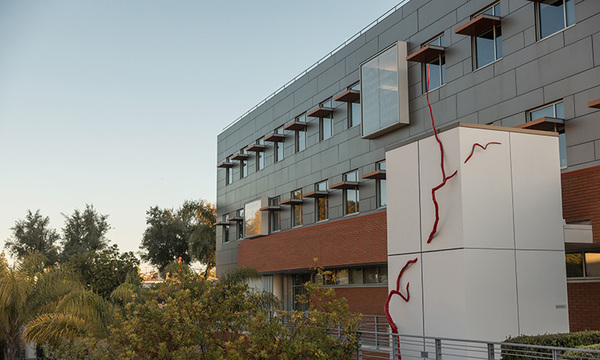Does the local church need the institution of a seminary? Many today would say ‚Äúno.‚ÄĚ The reasons that they may cite is cost of tuition, non-relevant subject matters, being impractical or being too academic. As a result, some have mockingly called this institution ‚Äúcemetery,‚ÄĚ suggesting that those who go there die spiritually. While there may be some truth to these critiques, there are many more reasons why the partnership between the church and seminary are necessary. During a day and age where many view the seminary as obsolete and unnecessary, I would argue quite the opposite. I truly believe that the church needs the seminary now more than ever. In this article, I want to share why the church still needs the seminary today.
Pastoral ministry certainly is a challenging vocation more than ever before. Teaching the Word of God to people who question its truthfulness is at an all-time high. Knowing how to navigate through the culture wars and secular worldviews pose tremendous hardships to the church ‚ÄĒ specifically to the pastor. How can pastors and ministry leaders prepare to deal with all of these challenges? The answer for me is seminary. I had the privilege of attending Talbot School of Theology for both my Master of Divinity (‚Äô93) and Master of Theology (‚Äô96) degrees. These degrees were priceless to me and my ministry. This training has not only given me the answers to some of these questions but has also allowed me to weather multiple storms to be able to continue in ministry for 35 years as a pastor. I attribute this certainly to the grace of God. But additionally, I believe that seminary training has given me the foundation for resiliency, resources and perseverance. Here are four ways I believe that the seminary served me and the church.
1. To Hold the Theological Line Against Cultural Challenges
Due to the pressures of culture and society, the church has been influenced more than being an influencer to society. With the influx of ideas through social media, it is difficult for the church to maintain its theological and biblical stances. This is where the seminary comes in. The seminary can serve as an anchor that will hold the theological and biblical line for the church. This can be done by learning from professors who have dedicated their lives and careers to studying issues that may plague the church.
The seminary can serve as a gatekeeper to shifting values that challenge orthodox Christianity. This can include questions regarding challenges to the authority and truthfulness of the Bible, questions related to any of the members of the Trinity, deviations or additions to the gospel, or any unusual or unorthodox beliefs that may come toward the church. Since the seminary houses experts on all of these subjects, it can offer counsel and advice on different challenges that the church may face.
2. To Provide Resources Beyond What the Local Church can Provide
There are many megachurches in America today that are doing significant gospel ministry. We thank God for these ministries. These churches have tremendous resources and finances to impact their communities. This includes having their own Bible institutes and ministry schools. While this is helpful to the context of the church, often the training given to the people is related more to the specific culture and ethos of the church rather than to transferable ministry skills that could be utilized anywhere. Historically, this was seen during the Church Growth Movement of the ’80s and ’90s when churches like Willow Creek in Chicago would offer yearly conferences to train pastors from all around the world. They trained these men and women in their own brand of church but quickly found out that it was not transferable to the context of any churches smaller than Willow Creek.
The reality is that most churches in America are smaller than 100 people. These churches are often led by a single pastor. Where does a church like this turn to in times of trouble? It used to be denominations a few decades ago. The reality is that many churches are now independent and have no affiliations with either denominations or associations. This is where the seminary can come in and provide resources. There are several ways that this can happen. Here are just a few:
- Interim and guest speaking with professors
- Counseling and trauma resources
- Teleological counsel
- Consulting on issues of culture, sexuality, race and other social issues
- Clarification on false teaching and cults
- Pastoral and staff care with spiritual formation coaching
A partnership between the church and the seminary is beneficial to both institutions. This has been proven historically and hopefully will continue in the future. The benefit of the seminary to the average church in America is a priceless partnership.
3. To Train the Future Church as an Investment Toward Younger Generations
Another important aspect is the long-term investment of the seminary and Christian university education toward the church of the future. Talbot School of Theology also has a robust undergraduate Biblical and Theological Studies department that trains all ļŕ›ģ ”∆Ķ students in both their majors and future careers. Most undergraduate degrees at Biola include 30 credits of Bible and theology coursework, which provides a minor in biblical and theological studies to most students. This important investment shapes each student with a Christian worldview that can be transferred to any and all majors and degrees. Many of these collegians later pursue full-time ministry and go on to seminary for further training and service for the Lord.
When these students serve in their churches, they often observe the shortcomings and lack of training that occurs with the leadership and staff. This has been most evident with the preaching from the pulpit. We often hear how messages lack substance or are difficult to follow due to lack of structure. This has caused younger people to desire a better church for the future. This in turn has led them to register into seminary for thorough training in order to strengthen the local church. A place like Talbot School of Theology, which has both a fine undergraduate department and a full seminary, is a perfect set up for the training and development of future pastors and leaders for the church.
4. To Equip Different Ethnic Churches
Another benefit of the seminary is its ability to train and minister to men and women of all different cultures. Seminaries in America are starting to diversify in their reach and contextualization of ministry practices to help different ethnic churches and people from all over the world. If anything, the seminary needs to exist in order to have continued global impact for the universal church around the world. International students come to America and to seminaries in order to study and receive training that they could not receive in their respective countries.
Talbot School of Theology has trained and ministered to all different ethnic cultures and from students around the world. For example, Talbot has offered an Asian Ministry class at the master‚Äôs level as well as an Asian American Doctor of Ministry track. There is quite a large percentage of Asian and Asian American students who need to learn to contextualize ministry into their own cultural setting. We also offer a Doctor of Ministry program done fully in the Korean language. Talbot has also added an African American Ministry track and recently launched the Talbot en Espa√Īol program, where all of the classes are taught in Spanish. In this way alone, the seminary has served many different cultures and ethnic churches.
Another way that the seminary serves the local church is to provide the necessary training for churches to ordain their ministers. This has been accomplished through the Master of Divinity degree. This degree includes training in topics such as theology, church history, preaching, Bible survey classes and the original languages. The seminary provides the most complete training for a pastor in order to be prepared for ordination and full-time ministry. One little-known fact is that in most Chinese and Korean churches, they will not ordain a person unless they graduate from a seminary and do so with a Master of Divinity degree. This has been a required standard that probably will not change any time soon.
The Value of Seminary Training
Although there are limitations to seminary training, it is the opinion of this writer that seminary is priceless for sustaining pastors and ministry leaders for the long haul. Seminary does not provide all the answers for the challenges of ministry, but it does train the person to be able to look for, research and find the answers for this. The analogy that I often share with people who are opposed to seminary training is with medical doctors. I would ask the person if he would go to a doctor who did not go to medical school. The person would typically say, ‚Äúof course not!‚ÄĚ I would then respond by saying, ‚ÄúHow would you trust a person who is guiding your spiritual life and soul with no formal training?‚ÄĚ This typically ends the discussion.
Another valuable and priceless contribution from the seminary was the godly examples and mentorship received from the professors. These men were not only incredibly knowledgeable in their specialized fields but also able to impart wisdom not only for ministry but also for life and godliness. During my time in seminary, one professor, Dr. Mick Boersma, mentored me on how to be a good pastor. Another professor, Dr. Walt Russell, encouraged me on how to be a good husband and father. Yet another professor, Dr. J.P. Moreland, challenged me on how to be a godly man. All of these relationships started in the classroom but extended far beyond those walls into relationships that have continued to this day. This was truly a gift to me that was given through the seminary.
The church needs the seminary in order to continue to flourish into the next century. I say this not as a seminary professor but more so as a pastor who has served in the ministry for 35 years. I owe so much to my training in seminary that has helped me through my personal challenges, my doubts and my questions. I’m very blessed that my current church is filled with pastors and leaders, men and women, who have attended seminary, specifically Talbot School of Theology. This has not only strengthened our church but has made me a believer that this is an invaluable partnership that glorifies God.
 ļŕ›ģ ”∆Ķ
ļŕ›ģ ”∆Ķ

